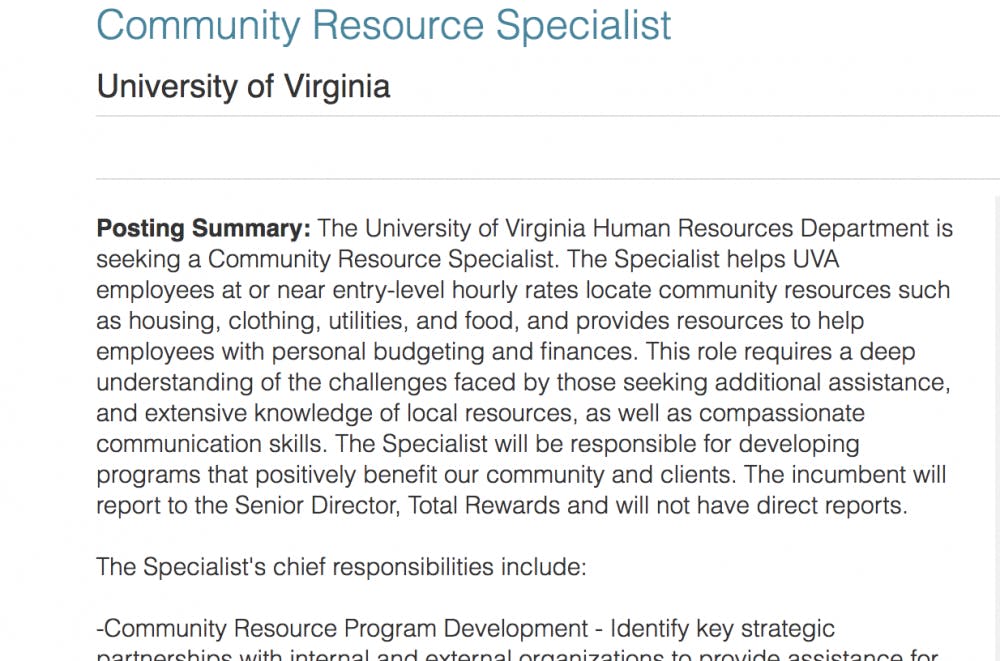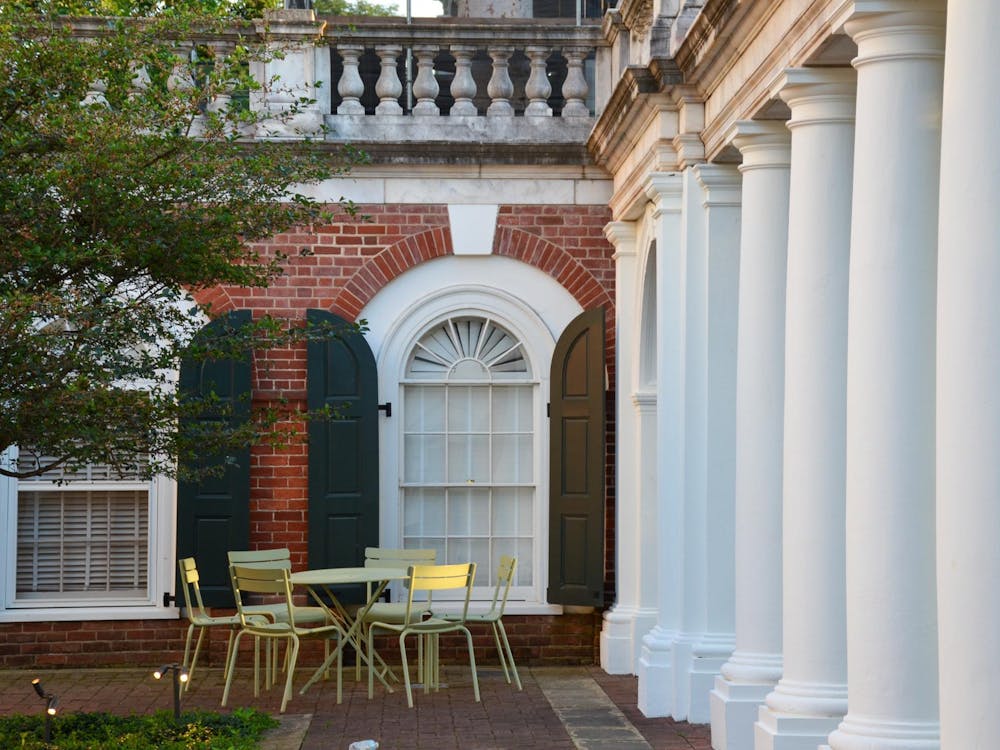A University job listing for a “community resource specialist” — whose job would include helping low-wage University employees gain access to “housing, clothing, utilities, and food” — has drawn backlash from some activists, who say the University should increase its wages for all its staff.
According to Deputy University Spokesperson Wes Hester, the new position — posted in mid-October — is one of several initiatives President Jim Ryan hopes to carry out to improve the University’s relationship with the Charlottesville community.
“The University’s decision to recruit a community resource specialist is in addition to, not instead of, the other initiatives that may be undertaken, such as increasing UVA’s base wage and working with others in Central Virginia to support individuals in the lowest wage categories,” Hester said in an email statement to The Cavalier Daily.
Corey Runkel, a third-year College student and spokesperson for Living Wage at U.Va., said the group disapproves of the University’s creation of this new job.
“In making this position, the University clearly knows they’re harming their workers who don’t receive a living wage,” Runkel said in an email statement to The Cavalier Daily.
At the University, direct employees are paid a starting wage of $12.38 per hour and Aramark dining employees are paid a starting wage of $10.65 per hour. According to the Massachusetts Institute of Technology’s living wage calculator — which determines the amount an individual must earn to support his or her family — Charlottesville’s “living wage” is $11.89 per hour for a single, childless adult, and $16.84 per hour for a family with two children and two working parents.
Runkel said that this new position merely creates an “illusion” that the University is helping its employees, and that a more effective allocation of resources would be raising employees’ wages.
“It could help,” Runkel said, “but it would be far better if their billionaire employer [U.Va.] gave them the benefits and wages that would let them live without such resources.”
Frank Dukes, a lecturer and distinguished fellow in the School of Architecture, said that he hopes the position will be part of a comprehensive solution to helping University and contracted employees.
"If it's used simply as a way to continue to pay some workers less than what it takes to really be able to live here, then of course, that's just patching up a wound rather than taking care of it,” Dukes said. “My hope and expectation is that President Ryan and the administration are going to be advocating for changes in the salary structure, both for U.Va. employees but also contracted employees, but I still think that that could be very helpful — having a community resource person as part of an overall package."
Scott Seal, the senior director of the Office of Human Resource’s Total Rewards Team — which manages employee satisfaction — said that the community resource specialist is intended to be a “long-term position to help U.Va. employees understand community resources that are available to them.”
According to Seal, the University does not currently have a solidified plan to increase wages, and the addition of this new job is entirely separate from that.
“I don’t know that [wages and the new position] are two mutually exclusive things,” Seal said. “We are continuing to look at wages, meaning that it is not off the table ... We decided to put [the new position] into place to assist our employees now in those community resources … We’re not sure of the timing of when wages will be adjusted, but this certainly is not a replacement of wages to be adjusted.”
Hester added that many employers do not help low-income employees access resources.
“In most organizations, employees must research and access assistance on their own,” Hester said. “By creating this position, the University is seeking to create a bridge between UVA benefits and other assistance programs.”
Runkel said the best way for Ryan and the University to improve its relationship with Charlottesville is by implementing a living wage, providing housing for workers and halting the expansion of student housing further into the community.
Hester said the new job will help current employees receive maximum benefits from the University and government assistance programs.
But the University administration also has taken recent action towards improving U.Va.-community relationships with “Bettering Our Neighborhood,” a working group Ryan created last month. The group aims to improve the relationship between the University and Charlottesville and may study wages, housing and healthcare, among other issues.







